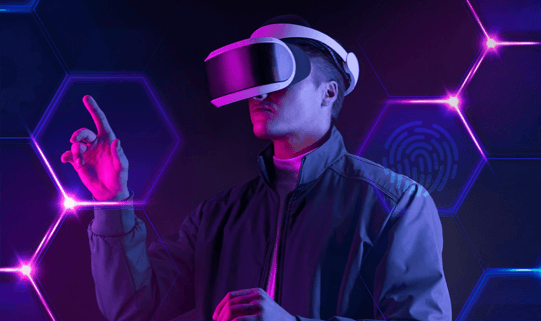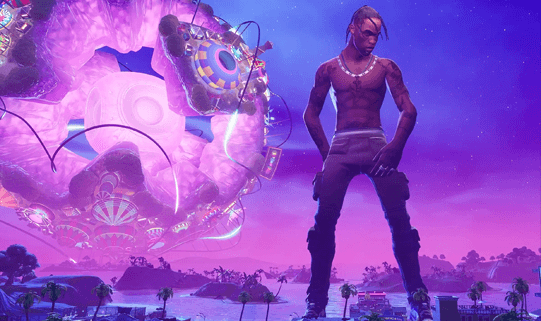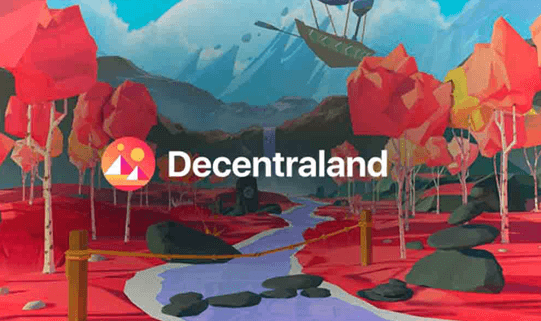As technology continues to evolve, so does the interconnection between our financial, physical, and virtual worlds. What was once complex and arcane is now easily accessible with a few taps on a smartphone screen. This could not be more true than in the realm of the ever-expanding crypto ecosystem.
Non-fungible tokens, games of blockchain and crypto payments are increasingly going mainstream, fitting seamlessly into an emerging “metaverse”. These innovative facets of cryptocurrency participation have never been more accessible or understandable to the average user, breaking down any barriers that may have prevented them from getting involved in the past.
As technology advances and encourages this intertwining of all aspects of life online and offline, it is allowing people to take control of their personal finances like never before.
what is the metaverse

The metaverse is an ambitious concept that imagines an interconnected 3D virtual space populated by users from all over the world. The term was popularized by writer Neal Stephenson in his novel Snow Crash, though it has since evolved into more than just a science fiction plot device. Through increased use of augmented reality and avatars, the metaverse promises to connect multiple platforms and networks in a single shared environment.
The metaverse is a digital universe that will combine multiple different virtual spaces into one. This will allow users to work, meet, play and socialize together in these three-dimensional spaces.
The metaverse does not yet fully exist, but some platforms contain elements similar to those of a metaverse. Video games currently offer the closest metaversal experience there is, the idea is set to take on much greater scope in the future, as advances strive to make this world-spanning utopia a reality.
NFT Games and the Metaverse
As digital reality advances, video games offer the closest experience to a metaverse that we can access. Beyond the mere 3D environment, these increasingly sophisticated games offer features and services that allow them to act as full-fledged virtual hubs.
Platforms like Roblox They host both events and larger events such as concerts and gatherings, giving players the chance to continue their activities in a completely artificial world.

This is very evident in massive first person shooter games like Fortnite, in which 12,3 million players participated in Travis Scott's musical tour within the game itself. It certainly seems that video games are proving to be a valuable springboard towards introducing true metaversal experiences into our lives.
How Cryptocurrencies Relate to the Metaverse
Cryptocurrencies can provide the necessary pieces of the metaverse puzzle that might not otherwise fit together. For example, cryptocurrencies can help establish digital proof of ownership, facilitate the transfer of value and assets, create a system of governance, and promote greater accessibility for everyone within the metaverse.
Essentially, this means that key functions in a metaversal society, such as working, shopping, and socializing, will feel more secure with the presence of cryptocurrency, as it offers protection against potential corruption and fraud. With this type of trust, users will be better able to engage in political and economic transactions with confidence.
The intersection between technology blockchain and video games is fascinating. Blockchain developers have drawn influences from the gaming world, most notably when it comes to decentralized finance (DeFi) and GameFi. Through gamification, users are rewarded for participating in and interacting with these marketplaces, which has the potential to revolutionize the way people interact with blockchains and benefit from their properties.
Looking ahead, there is a chance these two worlds will become even more integrated; Apart from gamification, some key aspects of the blockchain that make it suitable for the metaverse include:
proof or digital property
This is a valuable technological asset that can be leveraged to demonstrate responsibility and authenticity. By having access to a wallet and its corresponding private keys, it is possible to quickly validate the ownership of any number associated with an activity or asset on the blockchain. This capability eliminates guesswork and eliminates lengthy checks. High security wallets are the ultimate solution when it comes to establishing a digital identity and proof of possession, making them indispensable in our increasingly digital society.
digital collectibility
Digital collectability is an important concept for the future of the metaverse. Through the use of blockchain, non-fungible tokens (NFTs) and other digital technologies, it is possible to create 100% unique and traceable objects. This helps prevent counterfeiting and makes it possible to verify who things belong to. Using these systems also makes it possible to introduce more real-life activities into the metaverse, giving its simulated economies more legitimacy. As our presence in virtual worlds continues to grow, research into digital collectability and provenance will become increasingly necessary to ensure trust among users.
value transfer
The emergence of a metaverse requires a secure means of transferring value. Cryptocurrency on a blockchain is much more secure than game currencies used exclusively in multiplayer gaming environments. As the metaverse grows richer and more users adopt it, this trust in cryptocurrencies as an asset exchange will only increase. Active participation in the metaverse is inevitable as people interact, earn money, and spend time in it; Placing trust in a currency that can go beyond simple game purchases is paramount to your success.
government structures
Fair governance in the metaverse is key to ensuring users have the power to control how they interact with this new digital space. The technology Blockchain it offers a great opportunity for people to manage their transactions transparently and securely, as we have seen in real life applications. By creating a decentralized system of governance, users can ensure greater equality and fairness in metaverse decision-making through voting rights for companies or leaders, giving everyone an equal say in how things will get done. This type of blockchain-backed governance will help ensure that these standards are upheld and user rights are protected.
Accessibility
Accessibility is one of the defining characteristics of using public blockchains to manage finances and digital identity. Unlike a bank account, anyone around the world can create a wallet without having to pay money or provide data. This ease of use makes block chains public in one of the most accessible ways to allow people to take control of their personal finances and their identity in an increasingly digital world. Using these open technology networks, people who wouldn't normally have access to traditional financial services suddenly gain the ability to manage their incredible assets with just a few clicks, no matter where they are.
The exciting prospect of coupling blockchain technology with gamification could open up many new opportunities for entertainment seekers and financial aficionados alike. In short, cryptocurrencies are essential to building a secure and equitable metaverse today.
Some examples of metaverse

Applications from the metaverse are becoming more innovative and pervasive as they experience rapid growth in user engagement and interaction. These are some of the platforms that incorporate NFTs and other blockchain elements:
- Second Life It is probably the most popular metaverse platform, it was launched in 2003 and has millions of users. It is a virtual world with avatars that can interact, build and buy content from each other.
- Sandbox It is an essential tool to prevent damage or cyberattacks to the hardware of a system. It is a term often used in cybersecurity and its main function involves the execution of programs and operations in a virtual environment separate from the operating system.
- Decentraland offers an immersive 3D world where users can explore and create virtual properties by buying or trading land. Content creators in these worlds generate income by selling assets like art, music, and merchandise.
Conclusion
The metaverse is a fascinating concept that has the potential to change the way we live. It will allow us to connect more easily with people around the world, it will offer us new ways of working and learning, and it will provide us with more options for entertainment. For this to happen, however, we need platforms that are secure and accessible, and that use blockchain technology to ensure fairness and transparency. We think the future of the metaverse is bright and we look forward to seeing it come to fruition in the years to come. Do you want to be part of this future?



